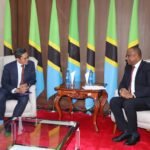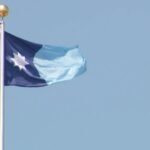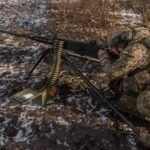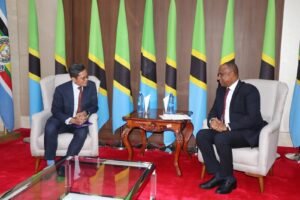One person is reported to have died days after Ghanaian soldiers invaded Taifa, brutalizing residents and arresting 184 people. The military claimed that the raid was an “intelligence-led operation” in response to the alleged killing of a soldier in the area.
Calls for an independent investigation, accountability, and compensation have grown in Ghana following a violent military operation in Ashaiman-Taifa, an urban slum settlement located in the suburbs of the Greater Accra Region.
On March 7, the Ghana Armed Forces (GAF), reportedly from the Burma and Michel military camps, stormed the area in armored vehicles, with helicopters flying overhead. In the ensuing raid, soldiers brutalized residents of Taifa, broke into homes, and detained 184 people.
On Thursday, March 16, Ghanaian media confirmed that one of the victims of the operation, a man identified as Alhaji Mohammed Musah, had died. Musah had allegedly collapsed after soldiers chased him into his house to beat him.
In a statement on March 8, GAF claimed that it had “conducted a swoop in Ashaiman and its environs in a manhunt for some criminals, who are suspected to have stabbed and killed a young soldier (identified as Trooper Imoro Sheriff who had himself grown up in Ashaiman) in the early hours of Saturday, March 4.”
It also confirmed that the operation had been sanctioned by higher-ups: “GAF wishes to state categorically that the military operation, which was sanctioned by the Military High Command, was NOT to avenge the killing of the soldier but rather to fish out the perpetrators of the heinous crime.”
“We knew instantly that this is not something that could have been done by rogue elements in the military,” Adib Saani, a security expert, said during a discussion hosted by Pan African Television on March 15. “The galvanization of military hardware made it almost look like we are at war, as if it was a major counterterrorism operation.”
While GAF claimed that the “swoop was not targeted at innocent civilians but was an intelligence-led operation conducted on suspected hideouts of criminals and crime-prone areas,” disturbing visuals from the raid circulated on social media show Taifa residents being forced to lie in the mud.
There are also reports of people being tortured and flogged, made to eat cow dung, and given bottles filled with water from the gutters to drink. GAF’s refusal to apologize for this violence, while acknowledging that there may have been “excesses,” has been widely condemned.
On March 12, the Ghana Police Service announced that it had arrested six people suspected to be involved in the killing of Sheriff after a week of a “sustained intelligence-led operation.” None of them, Saani pointed out, had been previously apprehended by the military, which meant that the 184 people detained were innocent.
The incident has raised questions about the military’s deployment and jurisdiction in matters of “internal security,” and why an “intelligence-led operation” saw this level of mass violence in the first place.
The classification of certain areas, especially areas housing urban poor communities, as “crime-prone” also raises concerns—and this is not specific to Ghana—given that such language is often used to justify state violence, including heavily militarized forms of policing, or, in the case of Ashaiman, direct military action.
“The use of military force against civilians is a clear violation of Ghana’s Constitution, which protects the right to life, freedom from torture, and the right to a fair trial. Military personnel are bound by these laws and must be held accountable for any violations they commit,” the Accra Collective of the Socialist Movement of Ghana (SMG) said in a statement.
Speaking to the government’s refusal to condemn the violence, SMG General Secretary Kwesi Pratt Junior added, “I heard a minister complaining that in the past we used to fear the soldiers and policemen and now we do not fear them anymore. And that this exercise should teach us important lessons so that we shall begin to fear the military uniforms.”
“I thought that was the most unfortunate statement, which betrays the colonial mentality of our leaders. It was during the colonial era that colonizers decided that if [they] are recruiting policemen, to not recruit them from the areas where they will be doing the policing because they will have family there and so they would not be able to be brutal enough. So they brought in policemen from Nigeria, who they thought had no relatives, here so they could brutalize us,” he said.
“If this is the mentality of those who govern us today, then we are in deep trouble. Why should we fear soldiers and policemen if they are there truly to protect us?”
Organizations including the Commission on Human Rights and Administrative Justice (CHRAJ), have also condemned the operation: “Because of their (the military’s) personal interest they come [to Ashaiman], take over the law and do what they want… It is degrading and dehumanizing treatment to put such persons, who are going to their work, [to] arrest them, make them do press ups in mud, sitting down with all their clothing removed apart from some briefs… this is exacted by the army of Ghana? It’s completely unacceptable.”
Others have accused Ghanaian President Nana Akufo-Addo, who is also the Commander-in-Chief of the armed forces, of “tacit endorsement” of the military’s actions, given the government’s refusal to speak out against the incident, or to “condemn and sanction the military officers implicated in this barbaric episode.”
Source: Peoples Dispatch











